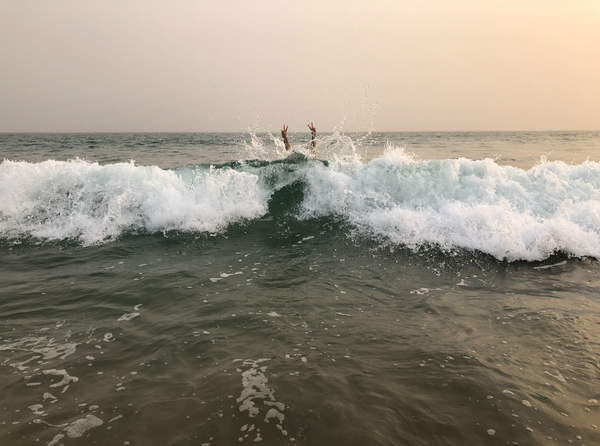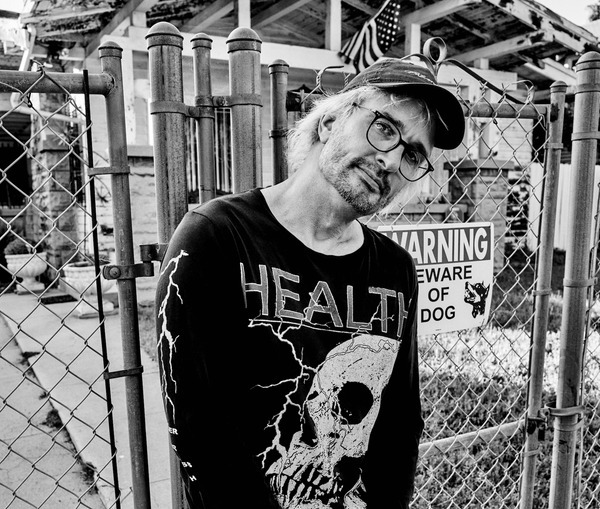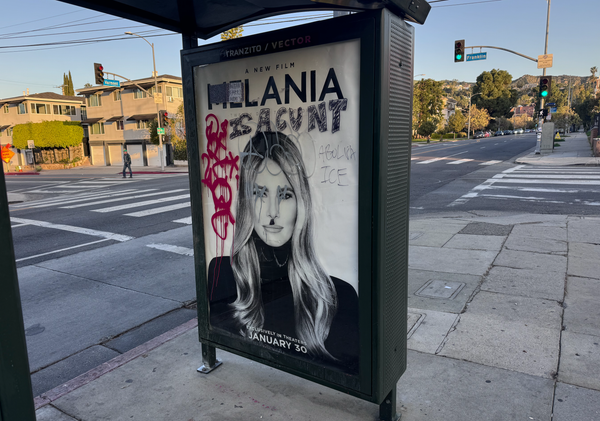Nicki Minaj, Lightning Strikes & Fortress NZ
Each week is more zany than the last!
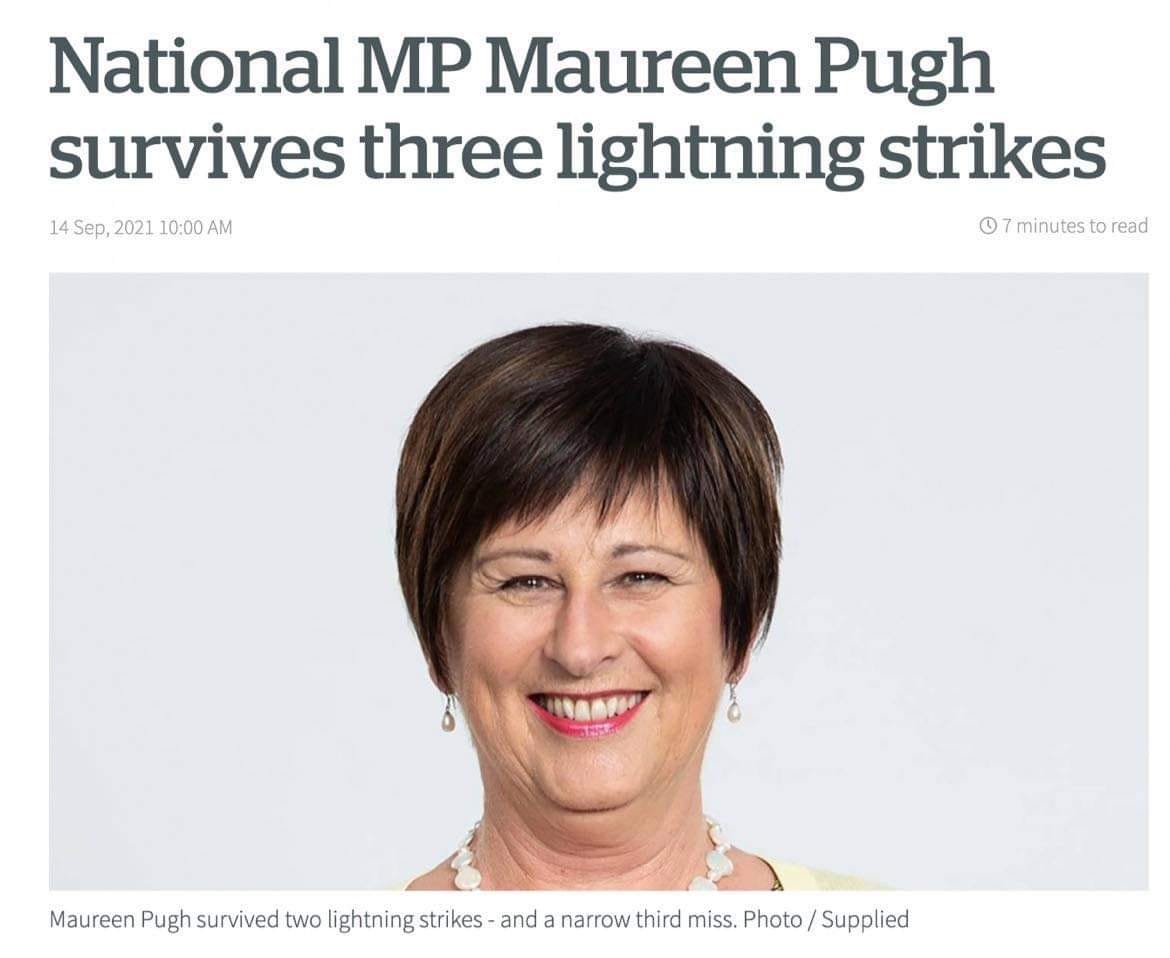
Hello,
Thanks for reading Has Joseph Gordon-Levitt lost his mind — I’ll have an update on that next week. This story has… expanded.
As for this week, it’s been wonderfully bonkers — probably best summed up in this tweet from Nicki Minaj which was shared 85 thousand times (before Twitter suspended her account):
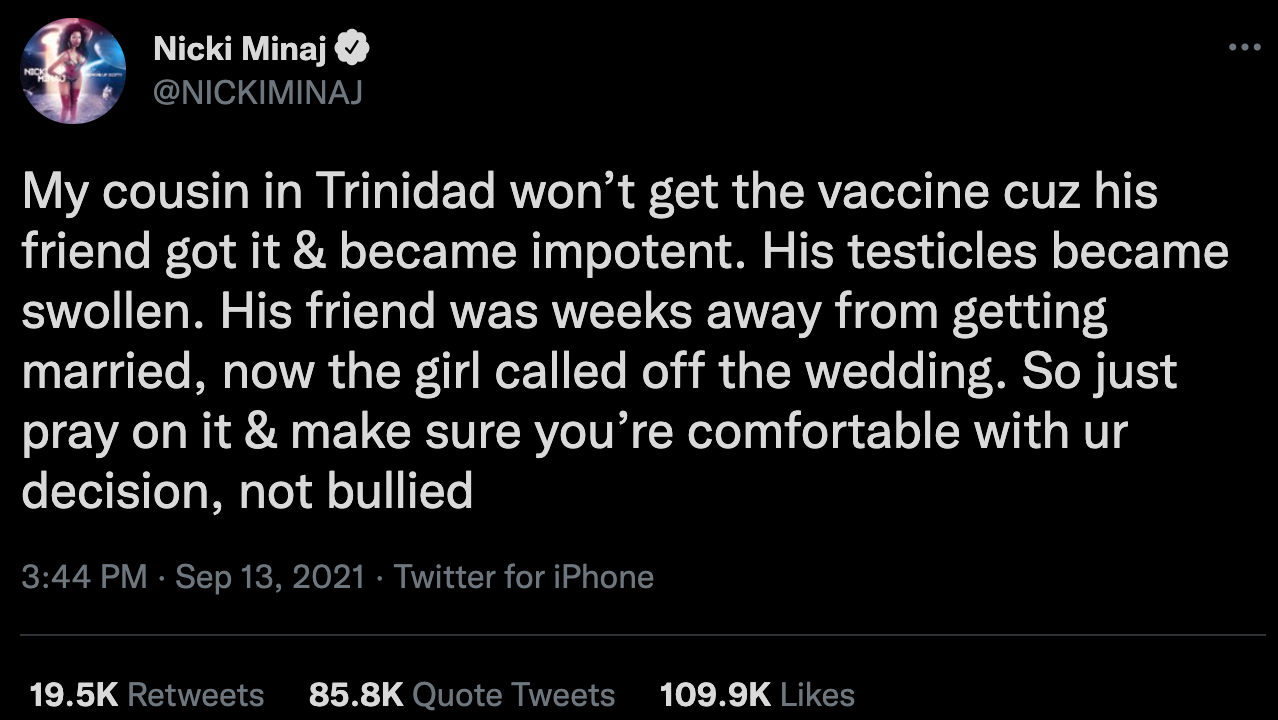
I think that one of the most damaging and useless things to do during a pandemic is to share a “my cousin” story. Unverified stories of “my friend” or “I heard…” is the fodder of misinformation idiocy. The telegram of the village idiot. Unvetted, unverified madness that helps no-one.
What makes stuff like this particularly frustrating is that Minaj has a giant audience with over 22 million followers. I’d argue a high percentage of those 22 million are gullible idiots that now think a vaccine is causing swollen testicles and impotency.

Carlos Maza summed up my feelings better than I could:
“The past few years have destroyed what little faith in human intelligence I had left. No other species puts so much effort into killing itself.
We keep getting easy moral questions — vaccines, climate change, fascism — and absolutely bombing in the most spectacular way possible. So tired of watching people mindlessly argue for their own annihilation.”
And so in times like this, I turn to New Zealand — that bastion of sanity and reason. Sure, we also have utterly unhinged stories: but they are also somehow pure. Take this article about a member of parliament who keeps getting hit by lightning (and is damn proud of it):

Three!
The piece about pool ol’ Pugh went on:
“National MP Maureen Pugh has been struck by lightening three times, she’s revealed — once so powerfully it cooked her flesh, and another time leaving her like “a vegetable” for six weeks.”
As the photo caption put it, “it’s the smell she won’t forget.”

The smell of New Zealand:
I miss the smell of New Zealand, too. Not the smell of Maureen’s burning flesh, but the greenness of it all. And the last month I’ve been thinking about how strange it is to not be in New Zealand right now. But moreso, that it is impossible for me to get there.
If you missed the news, New Zealand was super-smart when Covid hit and went into lockdown. Quickly. We stamped Covid out and avoided senseless deaths. When any news cases were caught in the community, New Zealand would again lock down in various ways, using contact tracing to stamp it out. And a great deal of New Zealand life has gone on as normal over the last year. And again — deaths were avoided. That is so, so good.
The slight problem is, to keep Covid out, the borders are policed very tightly. If you’re a New Zealander who isn’t in New Zealand and you want in — you have to somehow manage to book a room in a managed isolation facility (MIQ). It costs about $3000 and you’re there for two weeks.
It’s logical as heck, except there isn’t enough room. So right now, too many kiwis overseas want to get home — and they can’t.
On top of this, the system to get a slot has been mess. I wrote about this mess in an earlier Webworm — and this week, the Government announced it would be making changes from Monday: a lottery system, of sorts. Most people will still miss out on a spot, but the lottery aspect made it a bit less infuriating. I am going to give it a go.
As I type this, I sit in America. I was fully aware of the situation I was flinging myself into when I left New Zealand in April. I left without securing a spot in managed isolation for when I was due home. So — while I have a flight booked for October back to New Zealand — I won’t be able to take that flight, because I have nowhere to go when I land back home.
And again, I’m fine and happy. But others are not.
There are a myriad of reasons people need to get home (medical, mental, and everything in between) to Aotearoa. Thankfully — there’s a system that allows for special exemptions. You apply with your mishap — and you hope to get a spot. The thing is — there’s still not enough room:
“Pregnant NZ woman declined MIQ emergency spot six times”
A pregnant New Zealand woman with a medical condition that could put her and her unborn child at risk is stranded in the United States and uninsured, after being declined an emergency MIQ spot six times.
That article was from August 26. Sick of being rejected, the woman — Bergen Graham — initiated legal action against New Zealand’s Health Minister and the Ministry of Business, Innovation and Employment (which runs the MIQ system).
Her lawyer Francis Joychild filed papers in the High Court on September 6. 24 hours hours later, her client was offered a spot in MIQ.
“She got the voucher yesterday and we’ve filed a notice of discontinuance of the legal claim today. That was part of the settlement.”
Joychild says legal action over MIQ bookings will continue with others taking it on.
She says how the MIQ system is currently operating is a breach of Section 18 of the Bill of Rights Act.”
I was deeply curious about this — New Zealanders taking legal action to get back home.
Heading up the efforts to help people like Bergen is London-based lawyer (and kiwi) Alexandra Birt. She’s part of Grounded Kiwis, a group of New Zealanders living overseas who want an overhaul of the system. I asked her about what the hell is going on.
A conversation with lawyer Alexandra Birt
Were you surprised at this U-Turn in the Bergen Graham case?
Not at all. It was clear to us that Bergen fit the criteria for emergency allocation and that MBIE had made the wrong decision and acted irrationally. We suspected that once the Crown Law team saw the evidence included in Bergen’s affidavit and read the Statement of Claim they would see the significant legal and political risk in allowing the case to be heard, and encourage MBIE to reconsider. This is exactly what happened.
With MBIE making this decision, they must be aware this leads them wide open for further action?!
In the few days since this decision was made, we have been inundated with messages from people in extremely difficult circumstances who are locked out of their country, and many of whom have had emergency allocations declined.
Kiwis are being left homeless, jobless, with dwindling finances, separated from family, overstaying visas, unable to access healthcare, and many are experiences significant mental health consequences (which is notably not a ground for an emergency allocation) and they are unable to return home.
There is no question that the MIQ system gives rise to litigation risk because New Zealanders’ most basic right as citizens — the right to return — is being significantly curtailed. Particularly high risk for the Government in our view is the emergency allocation system. The threshold of an “emergency” is set so high, the criteria are narrow, with evidentiary burdens impossible to meet in many cases, and the way in which MBIE applies this system is so rigid as to be irrational.
Roughly what was the cost of what you went through to these court papers files and this decision changed?
This is a matter between Bergen and her lawyer, Frances Joychild QC. But generally speaking, legal claims are expensive. Claims for judicial review must be filed in the High Court and the filing fee alone is hundreds of dollars. Legal aid is available for those who need it though.
When you add legal costs to the cost of flights and quarantine fees, and the costs incurred by people being forced to remain in a country where they have to pay for accommodation, medical care (often without insurance), and where they can’t work — adding legal costs to get back in to your own country on top of this is unaffordable for most.
Broad strokes, can you elaborate on where to from here: do you keep advocating for individuals are you looking for systematic change?
Both. We are looking to make systemic change, but it may be that advocating for individuals is the way to achieve that. Ultimately, the solution here is political. We can’t effect systemic change through the courts, but we can use the courts to achieve justice in individual cases, and this will in turn put pressure on the government to make policy changes.
Given the slow role out of the vaccine in New Zealand, MIQ and protection at the border has been an important part of keeping New Zealand safe. But the Government cannot justify maintaining an MIQ system which is inequitable and unjustifiably limits rights of New Zealand citizens. There are changes to the system that could be made tomorrow, and they haven’t been.
For example, there is no reason why MBIE couldn’t implement a transparent MIQ booking system, with waitlists, and clear indications of supply and demand for certain dates. As you will be aware, they have proposed a new ‘virtual lobby’ system, but how is that fair on Tim in Singapore who has been separated from his wife and three kids for 5 months, and has been trying day and night to get a spot for that whole time, who will have the exact same chance as someone who logs in for the first time.
Further, the Government has chosen to allocate more rooms per fortnight (up to 500) to “special allocations” such as sports teams, business people, and entertainers, including non-citizens, than it has to emergency allocations for New Zealand citizens (up to 350). Similarly, the high threshold and narrow emergency criteria need to be expanded to capture genuine personal emergencies, and not only those which happen within a 14-day timeframe.
As a slight aside — on the same day as we filed Bergen’s claim I met a friend for coffee who announced she was 4-months pregnant and returning to Australia. I asked her how she arranged this, and she said “it was easy”.
She filled in a form online, received a call from someone at the Australian Government who asked her some questions and confirmed she fell into the ‘vulnerable’ category. This meant she was eligible for a DFAT flight, and two weeks later had a flight booked home. When you compare this to Bergen’s situation, 32 weeks pregnant with a high risk pregnancy confirmed by three medical letters, no medical insurance, a visa due to expire by her due date, in transit, unable to work or find permanent accommodation, and it took 3 months, 6 applications, 5 complaints, 3 media interviews, and ultimately filing a high court claim to get a spot to return to New Zealand.
In the medium to long term, we are advocating for sensible risk-based changes to the MIQ system including an increase in MIQ capacity and consideration of alternatives such as home-isolation for vaccinated travellers, to ensure that all New Zealanders can return home.
What is the biggest misconception about the types of kiwis outside of NZ trying to get home? I just say this because I understand you advocate for those who really need to get home. I for example would not be someone you’d support (ie I left NZ willingly during a pandemic for work, without booking a return spot, and while I would like to come home for personal reasons, nothing is pressing or dire.
The Government’s message to Kiwis abroad recently has been “be patient”, and “don’t come home for a summer holiday”. These messages show a complete lack of understanding of the situations that Kiwis are facing. Many cannot be patient, and they are not looking for a holiday.
For example, we are contacted by individuals who are mid-way through cancer treatment, and only have a short window during their treatment when they are able to fly home to New Zealand — and cannot do so because they can’t obtain an MIQ spot. Or young kids who were overseas on an OE, who are now trapped, overstaying visas, with nowhere to live, and no source of income.
For many, the decision to go overseas was not taken lightly. We have heard many stories recently of Kiwis who travelled to Australia during the travel bubble to care for sick relatives and are now trapped, separated from their families and lives back in New Zealand. Some have lost their jobs as a result.
82-year-old Barry stuck in Brisbane doesn’t know when or if he will see his home, friends and grandchildren in Christchurch again.
The Government has turned its back on these individuals. Their personal struggles have become background noise in the (literal) far off distance it’s easier to ignore. We are trying to give these individuals a united voice. And to answer your question above, we support all New Zealanders who want to return home. You should be able to do this in a fair and equitable way, and while some delay may be reasonable and unavoidable, you shouldn’t be stuck abroad for months on end with no transparency over how long you might be expected to wait.
Also — one aspect of this whole MIQ situation that has been extremely distressing is the lack of empathy New Zealanders at home have for those who are overseas. An “us” and “them” sentiment has developed, and we frequently hear rhetoric like “keep them out”.
Individuals who are brave enough to speak out publicly about their personal struggles with the MIQ system are abused, ridiculed, and ostracised.
I’ve made the fateful mistake a few times of reading the Facebook comments on stories of our Grounded Kiwis members, and its truly shocking stuff. I personally have received messages entitled “Dear Traitor”, filled with abuse towards me for advocating for struggling Kiwis abroad.
I have a thick skin, and don’t let messages like this get to me. But I can’t deny it is impacting on my feelings towards New Zealand. I have always been a proud Kiwi, proud of our reputation for kindness, empathy, and unity. Now I’m not so sure.
Where is the kindness, empathy and unity? During a global pandemic, when we need it more than ever. We are all Kiwis, and we all call New Zealand home. Why should Kiwis overseas be treated as second class citizens?
Me here again.
The “Us vs Them” that Alex just talked about is real. Reading kiwis’ comments on any of the stories of those stranded outside of the country are brutal:



There is this strange thing some New Zealanders do in that as a general rule we hate people that leave. I think it’s tied in with this tall poppy syndrome thing we do, too. That’s this thing where we fiercely tear down anyone who dares to have any kind of success. Instead of being proud of it, we become deeply suspicious and cynical.
I think New Zealanders who leave New Zealand for any extended period of time are seen, in a way, as tall poppies. It’s really messed up.

But yeah, I’ve spent the week talking to New Zealanders — like Bergen — who really need to get home, but are being refused.
Bruce Blackburn is stuck working on a boat with a prolapsed disc:
“My application to get home not only for my mental health, but was for medical intervention for a prolapsed disc which l did onboard the ship in June.
[I] was turned down as MIQ [who] believe that l can get medical intervention at sea. They think you just pull the ship into a country and park at dock, get a doctor’s appointment.
It’s $25,000 a day to run the ship, then docking fees and about $500 for a visa to go the American doctor, plus $2500.00 for an MRI!
Add to that the Ship’s Agent’s fee and yea, na we not stopping.”
For some clarity — “Yeah nah” is what New Zealanders say when we mean “no”. We are too polite to just so “no” or “nah”, so we lead with a “yes” or a “yeah” before delivering what we actually want to say: “No.” It speaks to our deep insecurity, and I love it.
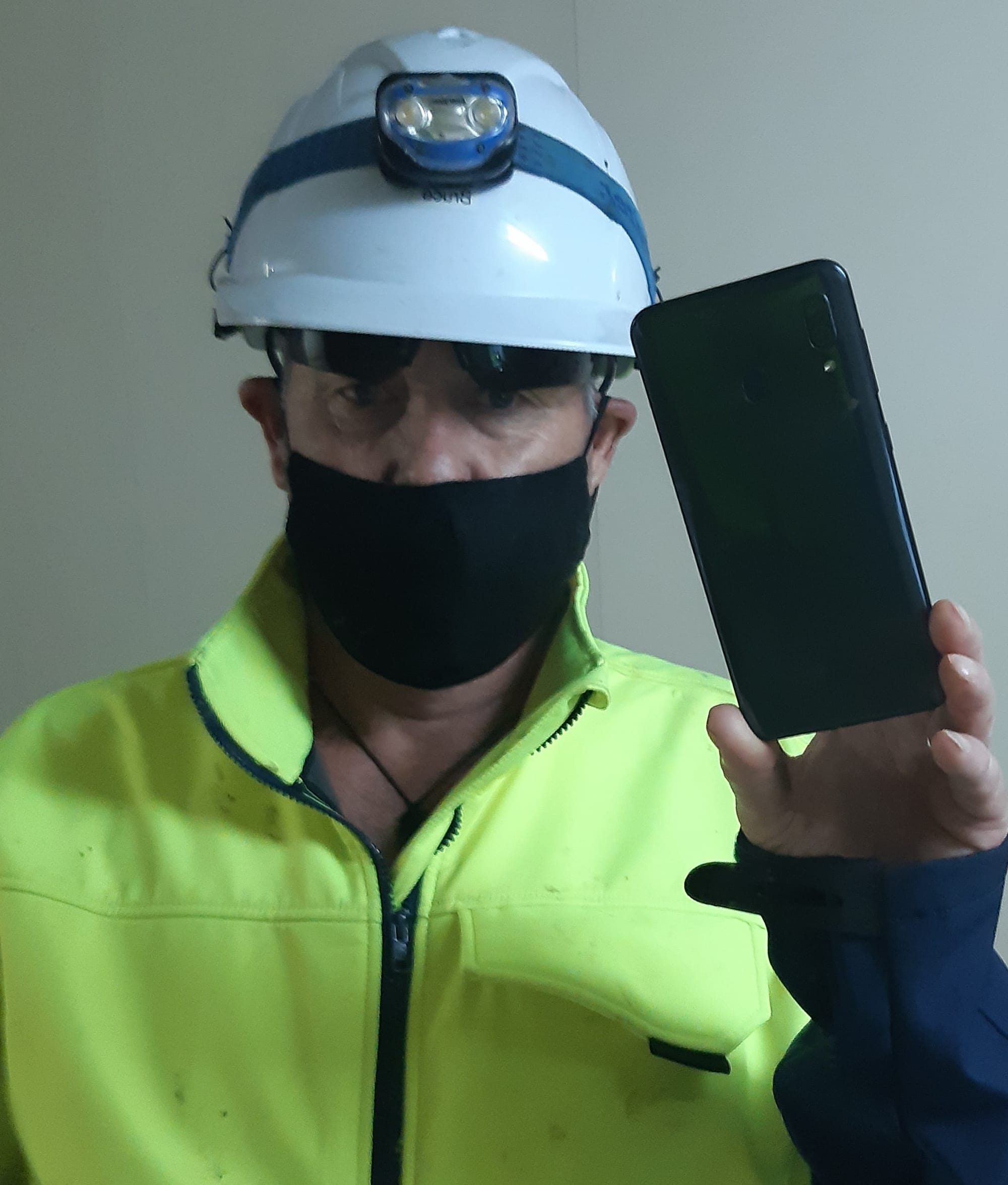
Bruce isn’t the only person with a boat problem. I spoke to Rebecca Oppert who’s also stuck at sea - stressed out the MIQ booking system is on pause till Monday:
“I have been living and working overseas in the Superyacht industry for the past five years, coming and going from New Zealand throughout.
I left New Zealand before MIQ was put in place — around May 2020. I have decided to move home for good as I have decided to start a new career and do one year of post grad study to become a Primary Teacher.
My course is starting in January 2022, and I have been trying since June this year to get home. I have not yet had any luck. This is not just “trying” per se and looking at MIQ everyday.
My trying has included me refreshing the page every seven to eight seconds for a minimum of 10 hours a day. I sleep with headphones in so if there’s a Twitter notification of a release I wake up and check.
I got Covid and extended my hours of trying a day to around 18 hours. I stopped hanging out with friends, drinking, doing after work activities so I could refresh MIQ. I take my laptop to the bathroom.
My mental health has gone down the drain.
Now they have paused it and I’m not gonna lie — I am less of a shell of a human.
But it would be nice to just have some information on when this is going to restart as we are all citizens and at the moment, majority of us cannot enter the country. They are using the emergency allocations as their legal cover but I know people who have been denied entry when their Father passed away — and this is not okay.
It has been almost four months since I started trying to enter my home country to move home for good to begin my next career and I have had no luck.
It’s not good for mental health, especially with people from home saying this is what we deserve as we turned our backs on New Zealand.
I pay tax, many abroad do. I don’t understand why the government has shunned us and I am super ashamed to tell friends overseas what my country has done to us.
No-one here understands, and they feel sorry for me all the time. It’s embarrassing to think my only home doesn’t want me and I feel like shit 98% of the time.”
98% shit. That’s pretty shit. I wanted to share one more story. It’s from Mike Moore, another kiwi I spoke to this week. Mike’s not stuck out of New Zealand, he’s stuck inside:
“You’ve only mentioned the plight of those overseas trying to get into New Zealand. It is my view that there is a more influential but less vocal group here that are unable to see their families overseas. I speak from personal experience after my brother’s suicide in UK in May.
MBIE response is that I can leave whenever I want but no guarantee of when I can come home. Having worked in travel technology for decades it is quite clear that the booking systems for MIQ are both opaque and useless.
Worse still is the lack of transparency on booking levels that allows all sorts of excuses to go unchecked. To blame the lack of capacity planning for quarantine processing on excess demand is ludicrous.”
I should mention that Mike is a consultant in travel technology — specialising in reservation systems. He knows his shit. I asked him about the government’s announcement about the new system:
“The press headlines will be filled by all the nonsense about a virtual lobby and the much better way of allocating MIQ slots.
It’s a total distraction (no doubt intentional). It removes the need for sitting front of a keyboard all day and makes it an official lottery, not even weighted by how long you have been waiting. Next Monday they will raffle 3000 rooms over a four month period — about 40 per day.
No increase in total capacity of a few hundred arrivals per day. Just a different way of searching for the needle in the haystack.”
What do we do? I don’t know. As I said — it’s my strong belief New Zealand is doing the right thing. But in doing the right thing, there are complications. And they have to be acknowledged.
This is a new world we’re living in, where nothing is a given. It was anniversary of 9/11 last week. 20 years later, it’s very clear our reality has shifted again.
As for the lottery system to get into New Zealand starting on Monday? I will log in and have a try — but with the knowledge that if I secure a spot back to New Zealand, it could well be at the expense of Bruce, Rebecca and Mike’s spot. And hundreds of others like them.
David.


